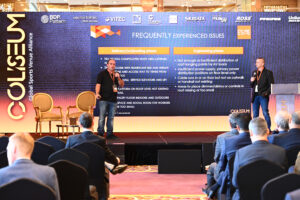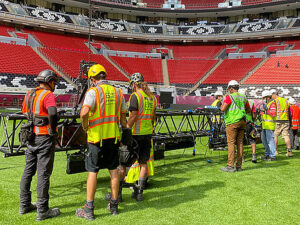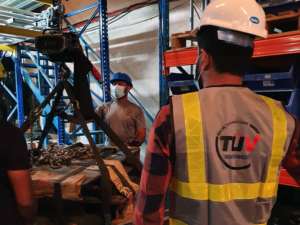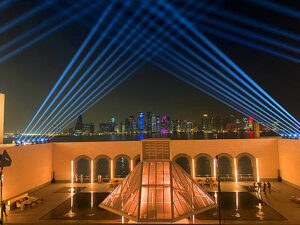Get an in-depth insight into the role of being a rigger and what makes them the cornerstone of the events industry.

The meaning of the word “rigging/rigger” has roots of essentially being able to put all parts together in one place for it to function. It is also an umbrella term to describe professionals that may exist in the construction, nautical, manufacturing, and especially entertainment event industries. Today, we are particularly diving deep into who makes events possible and what make riggers the cornerstone of the event industry.
What doesn’t get done without riggers?
Can you still remember those great events you have attended and ever wondered how they were created? Stages of varied sizes and weights, lights, audio systems, video walls and every other material attached or hanged from heights are all secured in their places because of riggers. They are the main characters in the “behind scenes” of every event. They assemble pieces of an event to produce concerts, galas, trade shows, festivals, and sports games—you name it. Before an event, there are riggers and after the event, still there will be riggers. In fact, just by merely looking at pyramids, cathedrals, sailing boats and skyscrapers, we get to see the most remarkable works of which riggers took part in for a very long time.
How does a rigger make an event possible?
It is always a combination of both, the tangible and intangible. On an individual level, a rigger is backed by years of experience in the field with the required certifications or license in compliance to safety standards. Riggers are both physically fit and mentally prepared for the job. As a group, riggers are good team players since they must efficiently communicate with other team members as they realize the blueprint of an event. They are disciplined and precise in following through each step of the process to ensure the safety of everyone. Every event is the outcome of a rigger’s head, heart and hands while being synced with his team and the laid-out plan.
What are the stakes and costs of being a rigger?
Literally everything and everyone involved in the event will be affected by a rigger’s performance output. Therefore, there are strict requirements riggers have to comply with, such as series of intentional trainings to get the required license and certifications for the role. Most also go through apprenticeships to gain foundational knowledge about rigging. It is mandatory for them to pass safety standards and to be well-versed with rigging equipment and its use. Safety is perhaps the biggest consideration for this profession as minor mistakes may result to damage of properties, worst even lives.
What makes being a rigger worthwhile why become one?
“I love being a rigger as we get to build something from nothing and are always called upon to solve interesting problems with the skills we possess. It’s of course challenging but extremely rewarding. It’s fast-paced, adrenaline-inducing and at the end of the day you can see the results of your efforts.” Reinier, one of ES:ME’s riggers stated. Riggers are an integral part of any event production big or small. The challenges overcame, the new people encountered, and the memories made during the making of these events would not be possible without the people that make them—riggers.
Riggers at ES:ME
At ES:ME it is important to us to have and develop the best riggers in the industry. This is the main reason we invest in getting our riggers the trainings and certifications necessary for the work. Some of the usual certifications our riggers must have are trainings for basic entertainment rigging, working at heights, rope access (IRATA training), IPAF, slinging and trussing, trainings for scaffolding erecting, basic first aid, basic firefighting, for protection and safety. A lot of the rigging knowledge comes from firsthand experience i.e., working on site with more qualified riggers.
At ES:ME we pride ourselves in passing down knowledge and experience to all the new and eager rigging aspirants who come through our doors and are constantly signing up our crew for any training/course that would make them a more qualified as riggers. This is how we ensure that we’re making events for all our clients and show comers the best, safest, most excellent way possible!
If you are a rigger and interested in joining our ES:ME team, please submit your CV and references (IRATA, IPAF, Work-At-Heights, etc. Pp.).









